Top Ten Tuesday is a weekly meme that was created by The Broke and the Bookish and is now hosted by That Artsy Reader Girl.
This week, I’m straying from the given topic and doing my own. I’d love to share with you ten of the books that I’ll be sharing with students in my English lessons this year.
1. ‘Groosham Grange’ by Anthony Horowitz
I always start of the year by reading ‘Groosham Grange’ with Year 7. Loads of students have read, and even studied the Harry Potter books at primary school, so they’re familiar with the idea of adventures set at boarding schools, but this one is a little more obscure so it’s normally new to most of them. It’s got all of Anthony Horowitz’s usual wit, although the obvious humour works well with 11 year-olds. I tend to just read it ‘at’ them for 10 mins at the start of each English lesson in the first term, rather than actually do any work based on it – if anyone ever tells you that Year 7 don’t like being read stories still, they’re lying! I know that they enjoy it as the school library copy of the sequel, ‘Return to Groosham Grange’ always has a waiting list, and pupils often go on to read more by Anthony Horowitz. A real crowd pleaser!
2. ‘Skellig’ by David Almond
In Year 7, we’ll be studying ‘Skellig’ as our modern novel this year. It’s a wonderful tale of friendship, fantasy and hope. Enough magic to keep it interesting, and enough reality for those who don’t like to suspend their imagination too much.
3. ‘My Swordhand is Singing’ by Marcus Sedgewick
By Year 8, I find that students are ready for something a little more ‘meaty’, and so I like to share ‘My Swordhand is Singing’ with them. It’s dark, unspecified setting (possibly middle ages, possibly Eastern Europe?) is full of folklore and suspicion. Introduce a curve ball in the form of some weird zombie/vampire stuff and pupils are generally gripped.
4. ‘The Picture of Dorian Gray’ by Oscar Wilde
Although I normally slip in quite a few extracts from classics like ‘Moonfleet’, ‘Treasure Island’ and ‘Robinson Crusoe’ in Year 7, this is the first full class novel that I share with the full class once they reach Year 8. Surprisingly accessible, there are so many things so talk about here – social responsibility, toxic friendships and attitudes to those who are different to ourselves. We do loads of drama-based and drawing activities with this novel, but I’ve been impressed by how well pupils cope with a challenging novel at a young age. The more-able will have the confidence to read other classics once they’ve got the first under the belt, and it’s a great book for looking at characterisation and relationships.
If you want to read a taster, check out my post from May.
5. ‘The Giver’ by Lois Lowry
I’m excited to be reading this for the first time with my Year 8 group this year. I teach a unit on dystopian novels with this year group and felt that they needed to experience a full novel to really understand the genre, but it’s tricking finding something that won’t worry them to much. I’m hoping that they’ll love this one as much as I do! Lowry’s classic Young Adult dystopia explores themes of delusion and inner courage as twelve year old Jonas begins to question the seemingly perfect society that he has grown up in.
6. ‘Lord of the Flies’ by William Golding
The huge amount of text that need to be studied for GCSE English Literature mean that it’s necessary to teach at least one of them in Year 9 if I’m going to avoid really stressing out my students in Years 10 and 11. I always start with the post-1914 text, and this year I’m returning to ‘Lord of the Flies’ – I think that my boy-heavy class of 13 year-olds will enjoy it. Friendship, bullying and peer pressure make for some relatable themes at this age, and there’s certainly enough action to keep everyone interested.
7. ‘An Inspector Calls’ by J. B. Priestley
In my 20 year career as an English teacher, I’ve probably taught this about 15 times. My Year 9s read it last year, so we’ll be revising it in Year 10 this year. It’s an engrossing play about social injustice, responsibility and blame, and its single-room setting and small cast make it ideal to act out in class. Students typically pull their faces at it at first, then grow to love it and get genuinely angry with its characters. There’s a brilliant BBC film version which is particularly faithful the original and makes revision that little bit easier.

‘A Christmas Carol’ by Charles Dickens
We all know this book, even if it’s just from the Muppets version or a pantomime, and Dickens’ tale of responsibility, regret and repentance still has plenty to offer today’s readers. There is so much to enjoy here, from Marley’s ghost with his jangling chains, Scrooge’s horror at how he’s regarded after his death, and his transformation at the end of the novel, and even the least-confident pupil can visualise each of the characters. Also, did I mention that there’s a Muppets version?!
I’m all for a reform in terms of the choices offered to students at GCSE, but from the limited list of examined pre-1914 texts, this is the one that I always go for. It’s probably the most accessible of all of Dickens’ works, and in terms of getting high grades for GCSE English Literature, his use of repetition, simile and lists are a gift to those capable of analysis his use of techniques in detail.

Poetry
I know that ‘poetry’ is not a single text, but I also know that if I don’t include it here, then I’ll get comments about how pupils don’t get taught poetry anymore. Poetry makes up a lot of the texts that students meet in lessons, and it’s threaded all the way through KS3 and KS4. I’ve made a real effort to introduce lots of authors from different cultures and backgrounds into my curriculum in Years 7, 8 and 9 (women, people of colour, and those belonging to the LGBT+ community are still ashamedly under-featured on the GCSE prescribed texts lists), and poetry is a great opportunity to make sure that everyone in the class feels represented and can relate to texts by people like them in lessons.
In Year 7, we take a trip around the world, looking at Poetry from Different Cultures and Traditions, in Year 8 we look at poetry about murders, mystery and the gothic tradition, and in Year 9 we explore pop lyrics and related poetry. Our exam board GCSE English Literature anthology features 18 poems from the 18th century onwards – there’s some really good stuff in there, although they are regrettably mainly by dead, white males.
Shakespeare
Okay, so anyone can understand Shakespeare on some level. It needs to be made interesting and relatable, you need to ignore a lot the language if you’re reading it when you’re 11, but I’m a big believer in looking at some Shakespeare every year whilst it’s still an exam requirement at GCSE. I’m really lucky in being at an independent school, so I don’t have to stick to a prescribed curriculum at KS3, so I follow my gut and teach it in the way that my students enjoy. I’m also the drama teacher for Years 7 and 8, so we explore at ‘A Midsummer Night’s Dream’ and ‘The Tempest’ in drama – lots of silly dressing up, lots of focus on the characters and playing around with the scenarios. My aim is to make Shakespeare less scary and let them engage with these fantastic texts as dynamic plays rather than a text to be studied in class.
In Year 9, we look at ‘Much Ado About Nothing’, and use this as the basis for their own creative writing (fabulous film btw!). In Year 10 or 11, we tackle the GCSE play, and I’ll normally teach either ‘Macbeth’ or ‘Romeo and Juliet’ (more fabulous films!) – we’ll still do all of the drama activities as it makes it so much less scary, and by Year 10 they’re old enough to enjoy most of the rude jokes, which is really half the fun with Shakespeare.
Readers: Which books do you remember studying at school?
Teachers: What’s on your curriculum this year?
I’d love to hear about your own experiences in the comments.


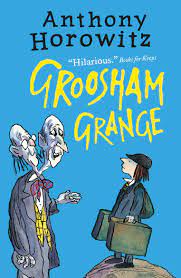
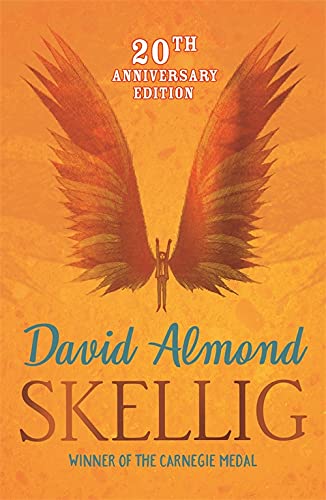
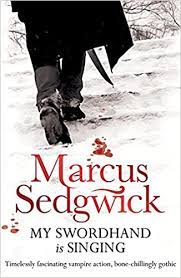
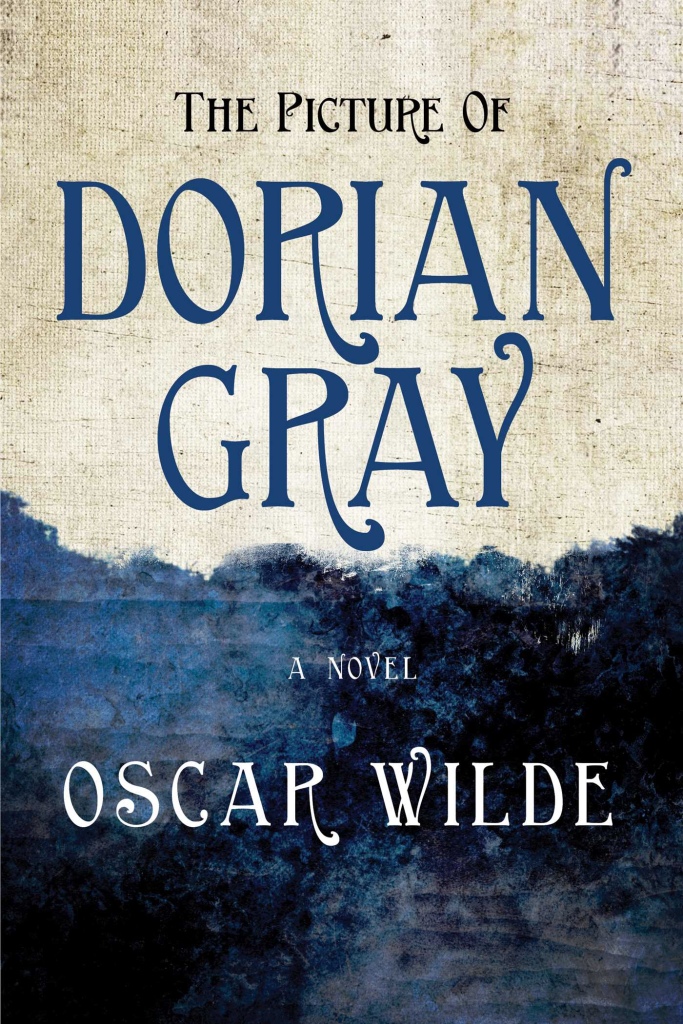

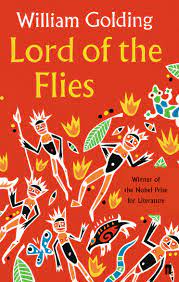
Groosham Grange looks like such a fun read!
My post: https://lydiaschoch.com/top-ten-tuesday-favourite-places-to-read-2
LikeLike
Oh, it really is! There are some big giggles whilst we’re reading this one together.
LikeLike
Nice! I’ve only read THE GIVER and A CHRISTMAS CAROL from this list, but some of these others sound fabulous. The book I remember most from school is THE BEST CHRISTMAS PAGEANT EVER by Barbara Robinson. I had this really strict teacher in 3rd grade. We were all terrified of her, but when she read this book, she was laughing so hard she cried. It definitely humanized her for us!
Happy TTT!
Susan
http://www.blogginboutbooks.com
LikeLike
That’s a brilliant memory, Susan! I think that ‘The Giver’ is often read in US schools, but not so much in the UK. I’ll have to see what my Year 8s make of it this year.
LikeLike
I love that you incorporate some truly accessible works into your curriculum, although I have awful memories of trying to read Dorian Gray in school and just despising it – it was probably one of my very first DNFs. I know I’m in the minority here though.
LikeLike
We don’t read every work of Dorian Gray, although I encourage the more able students to read the full chapters ahead of the next lesson. They enjoy finding out about Oscar Wilde, and other than that, we mainly focus on the themes, relationships etc.
LikeLiked by 1 person
Nice topic change! I should have changed it too. I really need to read Dorian Gray. I hope you have a wonderful school year!
LikeLike
Thank you, Leslie!
LikeLiked by 1 person
A great list! I was in the advanced level of English class from Grade 8-12, so I have read lots of various books (the majority from dead, white guys!). From your list, I’ve read Lord of the Flies, Macbeth, and Romeo and Juliet. By the time I was in grade 12, I was my English class’s Shakespeare translator (we read something of his every year but in grade 10). The only one I struggled with was Othello.
When you get the chance, I hope you stop by my post: https://readbakecreate.com/10-books-with-travel-locations-in-their-title/
LikeLike
Othello is certainly a tricky one, and although it’s one of the choices for GCSE with our exam board, there’s a bit to much racism and sex to make it an easy teach for 15 year-olds. I once went rogue and taught King Lear at GCSE when we were allowed to do any Shakespeare as coursework – they loved it!
LikeLiked by 1 person
Over the years, I read Lord of the Flies, Macbeth, and Romeo and Juliet for class. We even got to watch scenes from modern interpretations of both plays and analyze our favourites. Baz Luhrmann’s take on Romeo and Juliet was a big hit in our class (young Leo!). I also liked the BBC’s take on Macbeth from 2010 with Sir Patrick Stewart.
As for my favourite book I’ve ever read in an English class, that title probably has to go to Cry the Beloved Country by Alan Paton. We read this one in AP English Literature.
LikeLiked by 1 person
Young Leo is also a big hit with the teacher! I’ve never heard of ‘Cry the Beloved’ – off to have a look at it now!
LikeLiked by 1 person
Good twist on the topic. And what a great list. Your pupils are lucky to have you.
My TTT.
LikeLike
What a lovely thing to say, Marianne. Thank you!
LikeLiked by 1 person
I always tell the truth.
LikeLiked by 1 person
I think your pupils will enjoy poetry or so I hope. Happy teaching this year. May it be great.
http://www.rsrue.blogspot.com
LikeLiked by 2 people
Nice list, love the insight into your teaching curriculum, definitely brings back memories 🙂
LikeLiked by 1 person